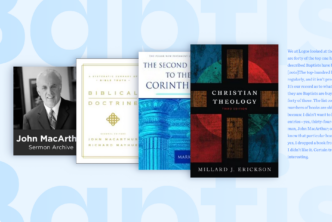It’s not hard for a church to be on social media. But it takes a lot of work to do it well.
In an interview with Faithlife Today, Justin Wise, author of The Social Church: A Theology of Digital Communication, shared some things every church should know about social media.
You don’t need a big team to have a big social media presence
Saddleback Church is well-known for using social media well. They have a huge following of highly-engaged people.
“What most people don’t know about Saddleback,” Justin says, “is that they don’t have this expansive social media team with dozens and dozens of people. They basically have Haley, who’s a one-woman wrecking machine.”
A successful social media ministry doesn’t require a large team of people to maintain. Where churches often run into trouble is when they try to be on too many social platforms at once—that’s when it suddenly takes more people to keep juggling all your social media accounts. Having a successful online ministry does, however, require a clear vision and dedication to your digital community.
“[Saddleback] knows who their persona is. . . . You don’t need a large staff to do that. Any church can do that work of drilling down into who they’re going after.”
If your church has a clear vision for your social media ministry, the people you’re trying to reach will find you. But having a page with the right focus, and growing a large social following is only half the battle. If someone reaches out to your church online, they expect there to be a person on the other end.
“Haley does a good job of being responsive,” Justin says, “which I think some churches struggle with sometimes. If someone tweets at your church, you actually have a responsibility to tweet back, because that may be their first interaction with your church. And the implications of not responding is similar to that of calling a church, getting an answer, and then someone in the front office hanging up on that person. It’s very similar in the way that it makes people feel.”
Ultimately, someone in your church needs to be responsible for replying to people who reach out to you. Whether that’s a staff person or a team of dedicated volunteers is up to your church.
You have to provide regular content
When you’re trying to decide which social media platforms your church should be on, it’s important to think about what your congregation is actually using. That’s where you’re going to get the most out of the content you produce.
Another church Justin admires—Crosspoint—has built a major piece of their social media ministry around SnapChat.
“When you look at Crosspoint, it’s a very young congregation,” Justin says. “And so they’ve chosen to use SnapChat to say, ‘Hey, here’s what goes on in our church the other six days that most people aren’t here.’ It gives people a peek into kind of the backstage of the church.”
Producing a regular stream of content might sound like a lot of work, but when you think about it, most churches are already doing this every single week. Part of using social media well is figuring out how to repurpose the work you’re already doing.
Related post: What Pastors Talk about Most on Social Media
“[Another church] does a good job at basically saying ‘Hey we’re going to take what we do on Sundays and turn that content into digital content.’ Every church has so much content packed into that Sunday message that it could fuel their ‘content marketing strategy’ throughout the week,” Justin says. “You take a sermon alone and you turn it into a weekly ebook. Or you take quotes from the sermon and put it on Instagram. Or you chop it up into 30 second videos and put those up on YouTube, or whatever. People are crazy right now for content. And the fact that the Sunday message happens every weekend, you can take that and really go far with it.”
You’re serving people online
For some churches, it’s hard to justify the cost (both time and money) of maintaining a website and social media channels for your church. If only a handful of people watch your service online, is it worth the work to record your sermons and share them online?
Here’s what Justin says about his church’s online ministry:
“They have an online campus that I think is a great example of how to say, ‘Listen, we acknowledge that there are people who used to go to this church that no longer do and still want to be connected. We acknowledge that not everyone is going to show up in the physical building every Sunday.’ And so they make the entire service available Sunday mornings for those folks.”
The goal isn’t to make showing up less valuable, or to promote a culture that sees church as a show. It’s to keep people connected when they can’t show up in person. (Not to mention, it can play an important part in drawing in visitors.)
“My wife and I have three kids,” Justin says. “[Being able to watch online] is a huge convenience when Sammy doesn’t have a good nap, or somebody’s unhappy, or we just had a diaper blowout right before we leave for church—I’m only being real. This happened three weeks ago, that’s why it’s fresh in my mind. He has destroyed his onesie, this is going to take a half an hour to clean up.”
There are plenty of unpredictable situations that can prevent someone from being in a specific place at a specific time. Social media and online sermons (live or recorded) let people stay connected to your church and the things that happen there. If your small groups build on the sermon, or your sermon asks people to do something during the week, you can still serve people who can’t show up by having a strong presence online.
“In those types of instances it’s nice to be able to say, ‘Listen, this is not our first choice—to watch online—but we can do it.’ And it allows us to maintain some form of connection to our church. Whereas the other option is that we just don’t go.”
Your social media ministry exists to serve your church community and help them grow. Does the way you use social media reflect that?





